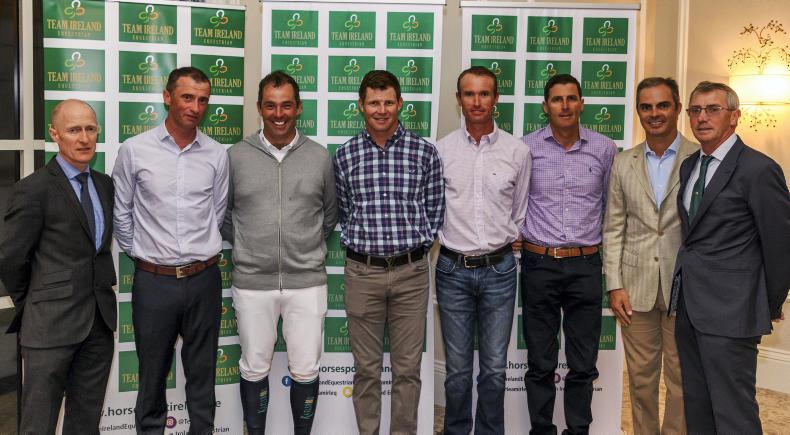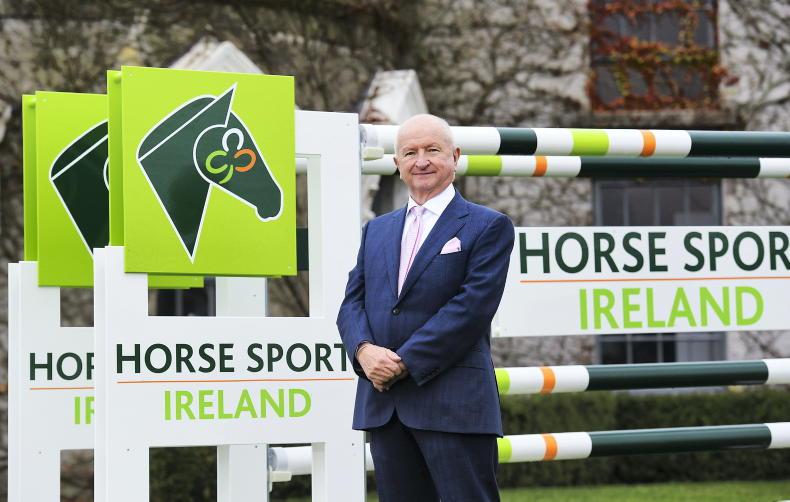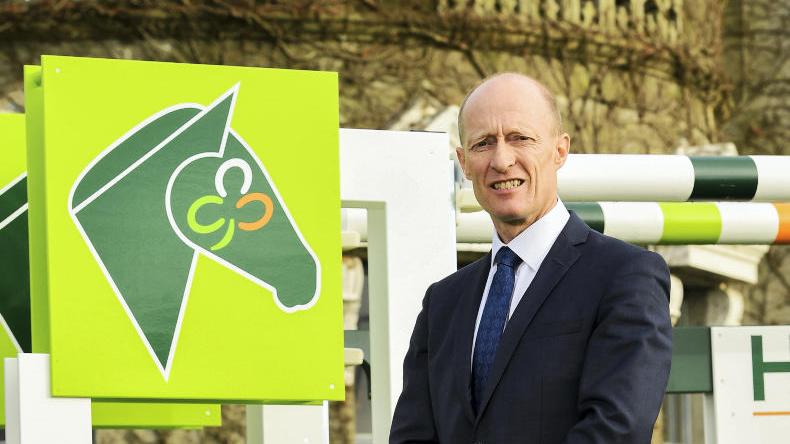Over the course of the past two years, a sizeable amount of research into the €816m Irish sport horse industry has been carried out. One thing that is evident from the research is that change is required if we are going to make progress.
In the words of Horse Sport Ireland’s CEO, Ronan Murphy: “Effective decision-making and significant strengthening of communications with stakeholders will be pivotal in delivering change for the Irish sport horse sector. I am looking forward to working closely with all our stakeholders to deliver our strategic plans, build a sustainable industry and to ensure the continued success of the Irish sport horse sector around the world.”
Although there is a lot to be done in terms of achieving the ultimate aim set out in the Reaching New Heights report, which is “to have a sport horse sector utilising the most sophisticated science and skills to breed and produce horses of the highest international standards” by 2025, a primary area of focus for Murphy will be the implementation of the recommendations in the Indecon report and the restructuring of the board of HSI.
DAFM sees Indecon as the basis for restructuring the sector and further funding from the government is dependent on the completion of Indecon
As we know, the Irish government is HSI’s main source of funding and increasing that funding is essential if we are to ensure both sustainability and growth of the industry. Murphy explains that: “DAFM sees Indecon as the basis for restructuring the sector and further funding from the government is dependent on the completion of Indecon. We hope to have made significant enough progress over the coming months so that we can be in a position to present clear business plans to support increased funding applications in next year’s budget.” Murphy added that: “The Jim Power report will also be helpful in re-enforcing the economic potential of the sector.
“The Irish sport horse sector has been grossly underfunded and we now have an opportunity to make a strong business case to ensure both sustainability and growth of the industry into the future.”
PROGRESS
The main board of HSI was described in the Indecon review as “exceptionally large”, with 19 members – this has implications for governance and effectiveness, which makes its restructuring a top priority. In its place, Indecon recommended a much smaller board of directors of nine people, backed by three consultative advisory councils, covering breeding and production, sports and leisure.
Commenting on the progress being made to restructure the board, Murphy said: “The Indecon Implementation Task Force is now working through the recommendations around board restructuring and we will be in a position to update our board on this later this month.”
HSI received an additional €500,000 contribution made by DAFM in the most recent budget and Murphy says that “the additional €500,000 has been ring-fenced towards the implementation costs associated with the recommendations in Indecon and the restructuring of the board including legal, HR, IT, data protection costs, etc”.
Speaking about the newly established committee, Murphy said: “The taskforce is independently chaired by Brian McNiece, with representation from HSI and our main government funding bodies (DAFM and the Department of Transport, Tourism and Sport and Sport Ireland). The taskforce has been meeting monthly (since December) and is working well. The core recommendations have been prioritised and the focus is on progressing and implementing the core recommendations in a timely fashion.”
The establishment of an international marketing division within HSI and the rollout of the Knowledge Transfer scheme to the equine sector has also been progressing in terms of achieving the long-term aim.
We need to create a framework for those in the industry and communication will be key
COMMUNICATION AND ENGAGEMENT
However, it must be said that engagement from breeders in the Knowledge Transfer Equine (KTE) scheme was not on par with the target of 1,000 set out in the Reaching New Heights report. Just 400 breeders took part in the scheme and last October it was reported that 32% of participants failed to submit their compulsory farm improvement plan and were, therefore, not entitled to full payment.
Murphy firmly believes that communication and engagement is key to the future success of our industry.
The KT Equine scheme was put in place to help breeders develop skills and knowledge, which will enable them to address sustainability, productivity and competitiveness challenges.
“The KT programme is a good way to foster communication within the industry and it also helps people set goals and plans to achieve them.”
He also acknowledged that “while this programme has potential, it’s not yet perfect. We have excellent people across the equine sector in Ireland, competitors, breeders, scientists – HSI needs to facilitate an environment which is conducive to an effective business model which breeds for market, incorporates science, is innovative and engaging.
“We need to create a framework for those in the industry and communication will be key.”











SHARING OPTIONS